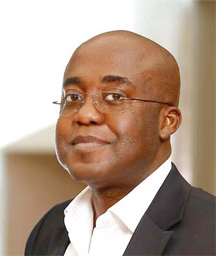The Roraima Learning Trust in collaboration with the Education Ministry is launching a micro-learning project that breaks down the CXC syllabus into small modules for fourth formers.
In an interview on NCN on Monday, Roraima Learning Trust CEO Kojo Parris said the project will be launched this week in seven secondary schools with 150 fourth formers and will run until June. Parris is also Guyana’s Honorary Consul to South Africa and a Visiting Fellow at the University of Leeds, a press release from the Government Information Agency (GINA) said.

The programme will start off with Mathematics and Chemistry. The modules can be accessed on an Information Communication Technology (ICT) platform and will be introduced in the national school system, Parris said.
Chief Education Officer Olato Sam welcomed the project and is hopeful that it would help to push the standard of education in Guyana even higher. He said that with the advance of ICT, it is only fitting that the learning process be continued in that format. Sam reiterated the ministry’s commitment to aid in the development and advancement of the school system and its focus on ensuring that students excel in their academics.
According to Parris, the focus is to enable learners to access the programme on their cell phones, smart phones or their laptops, in order to increase the rate at which they are taught in school. He said the system will run parallel to the existing system and will not replace what is done in the classroom, though, at the same time, it will free-up teacher time to assist students in other areas.
“Teachers won’t have to spend so much time now on their questions and the invigilation process, but can use that time to help children in other areas,” he said. Parris hopes that the micro-learning system can help reduce the cost of education and more importantly, provide teachers with a database of information on student performance.
GINA noted that the ministry has over time implemented several methods aimed at improving student performance in Mathematics and English, including a five-month pilot project launched in December. This project targeted fifth form students in regions Two, Three, Four, Five, Six, Seven, Nine and Ten; providing students and teachers with teaching and learning resources, including calculators; text books, solutions for Mathematics and English, learning DVDs and teaching guides.





